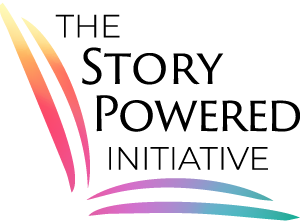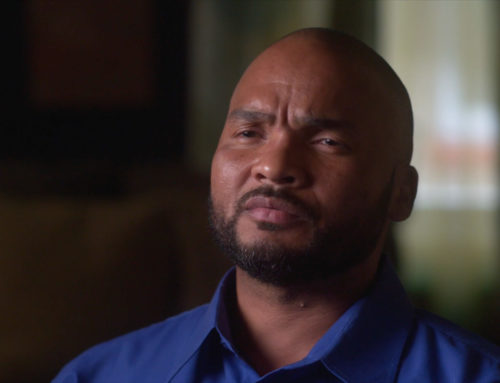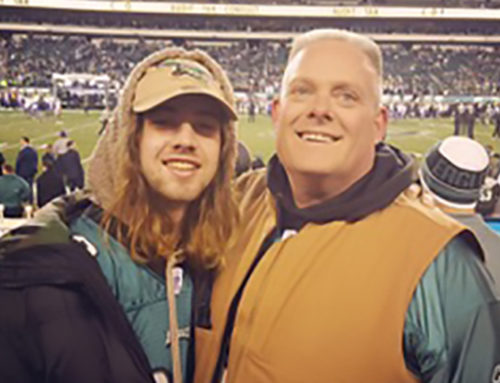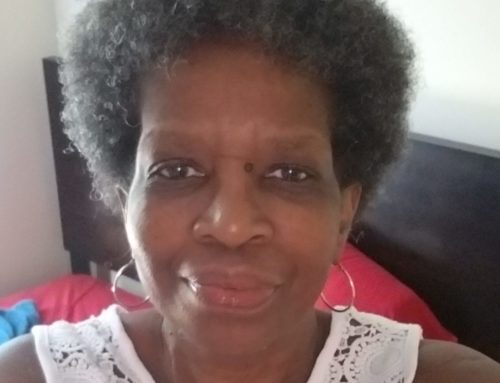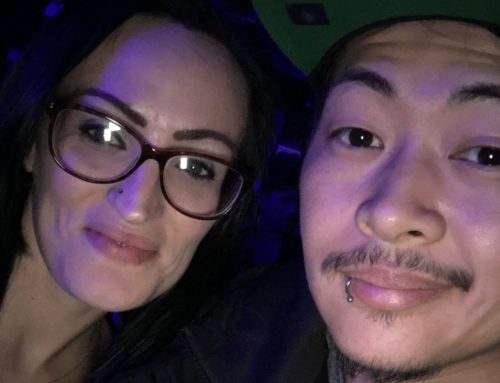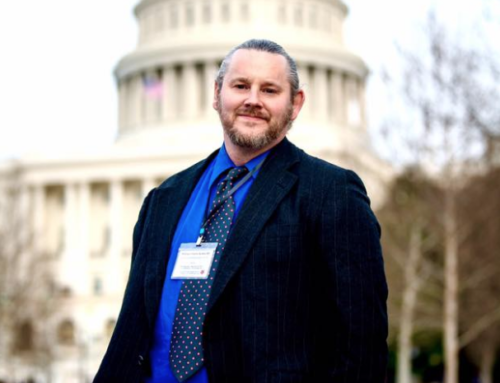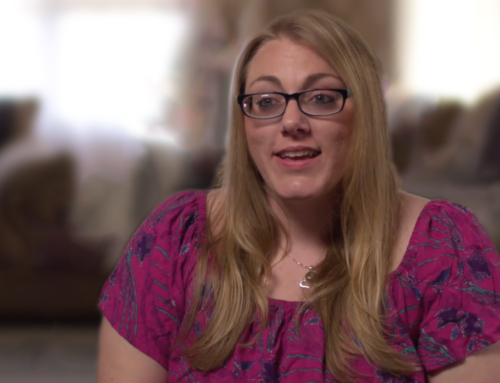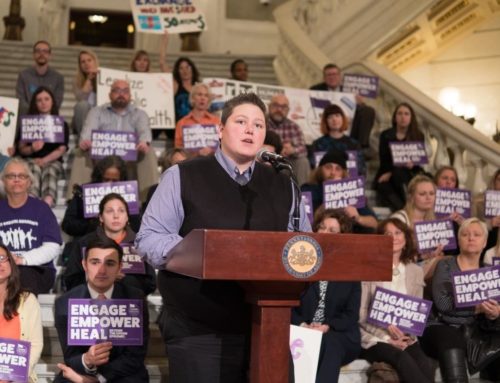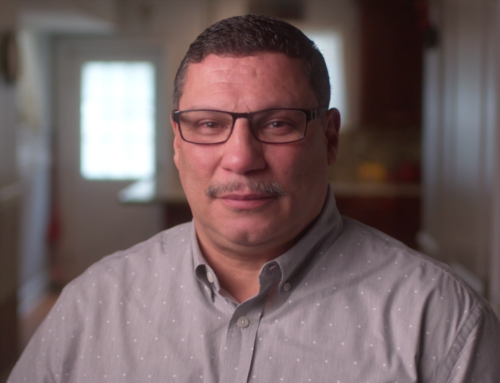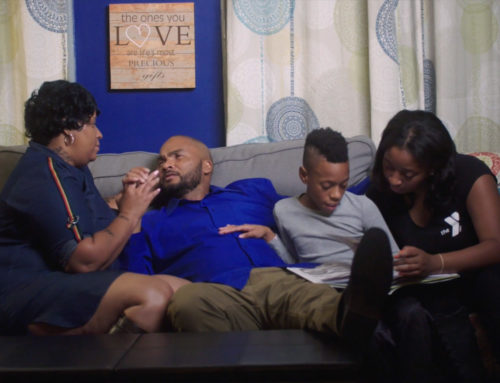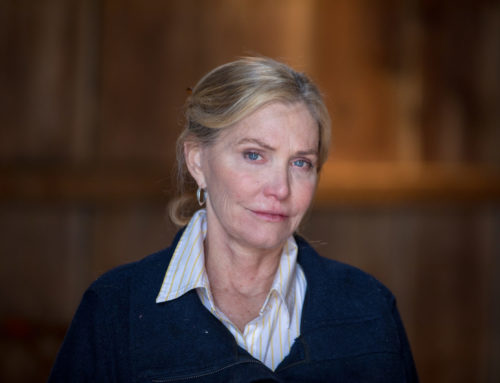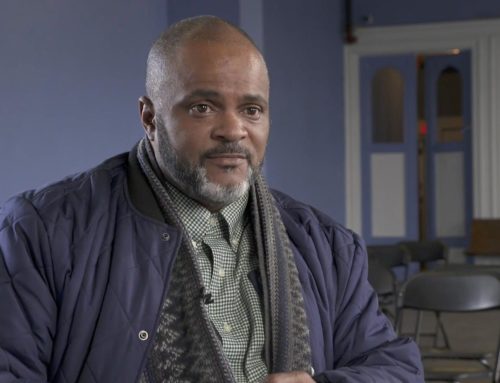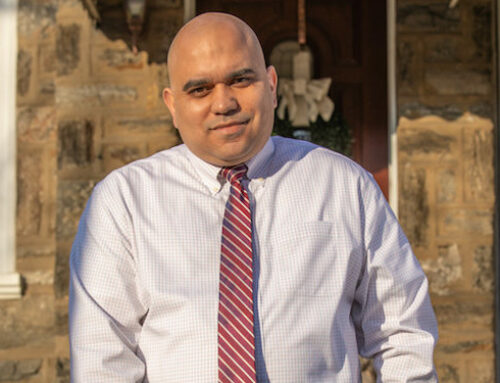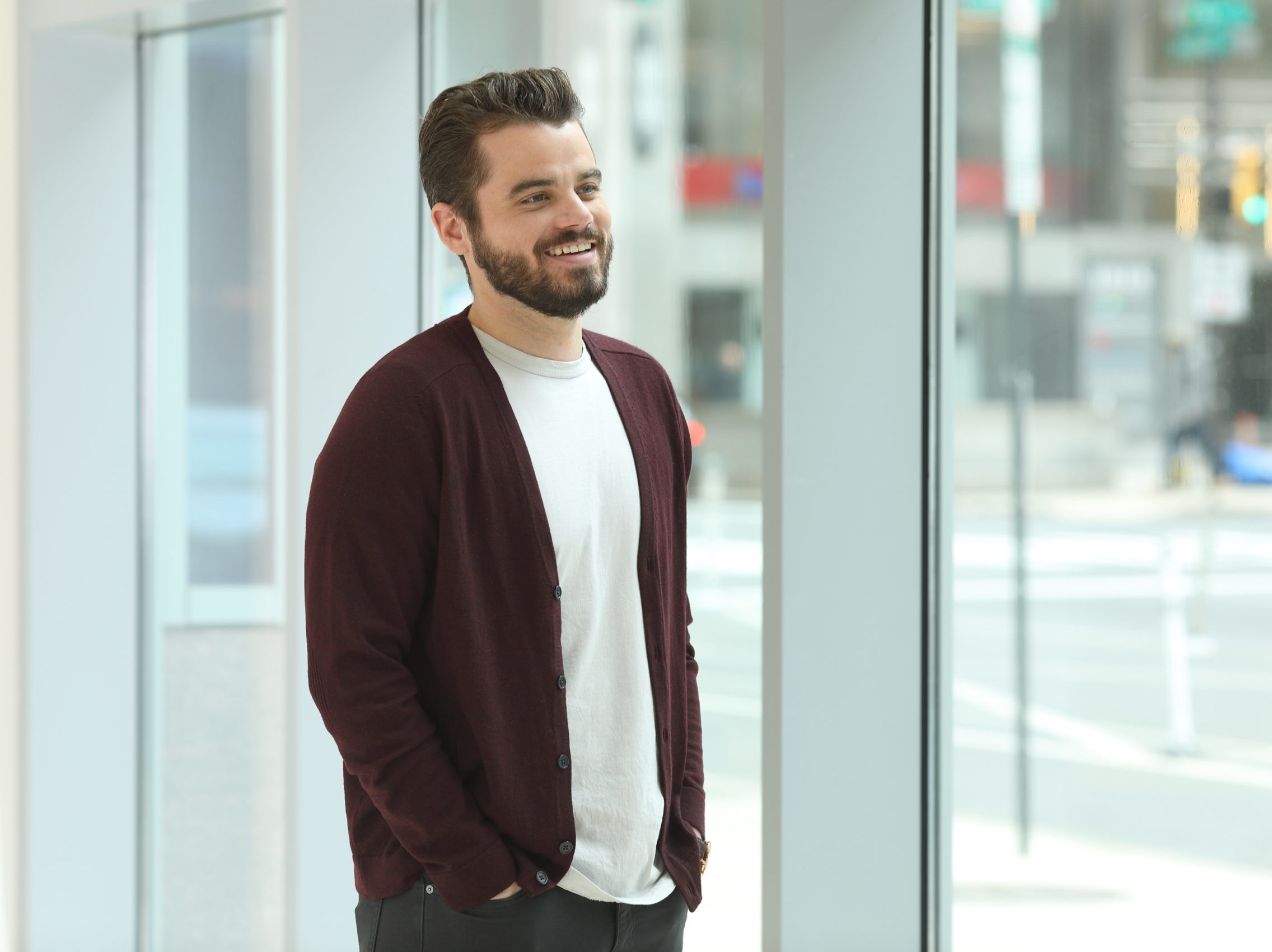
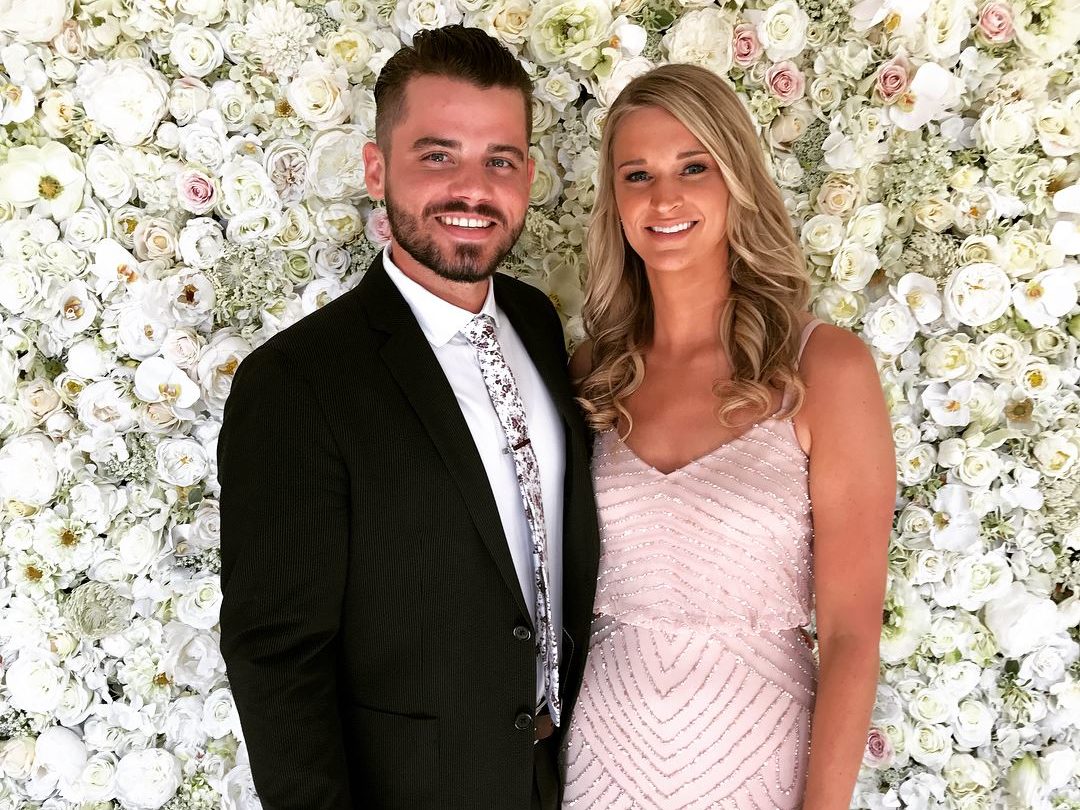
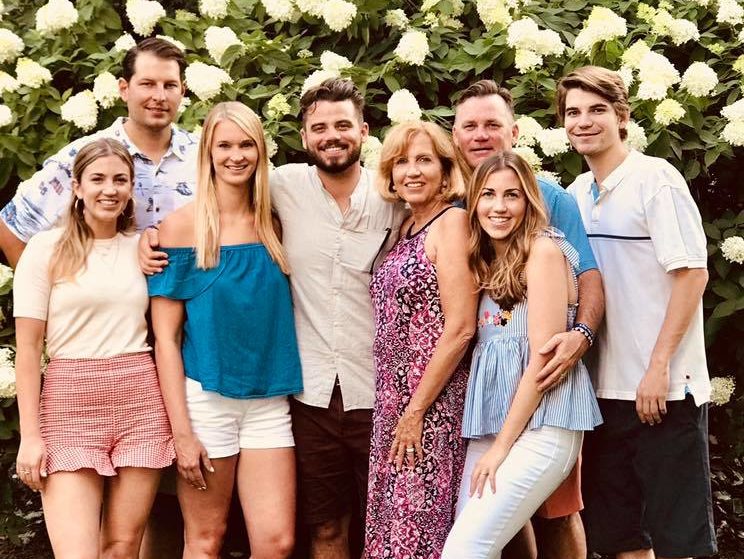
"Recovery for me isn’t about what we give up or what we abstain from. It’s about everything we gain. It’s about everything that we recover and everything that we build for ourselves."
I grew up in Havertown, Pennsylvania and currently live in Manayunk. I had a wonderful childhood with the most supportive and loving parents a son could ask for; my mom and dad are my heroes. Growing up, I didn’t want for anything and I was given many advantages in life. I have three siblings: an older sister, a younger sister, and a younger brother. They are some of the most sensitive, supportive, and loving people I know and my greatest supports today.
During my adolescence and into my young adulthood, I put my family and loved ones through a lot of pain and suffering. I started using substances at 13 years old, and by the time I was a junior in high school I was using some form of substance on a daily basis. In these critical years of my brain development, I learned behaviorally to remedy or suppress any emotion or anxiety by using substances. It wasn’t only negative emotions either; I learned to use substances to augment any excitement or positive feeling as well. While my only coping behavior was substance use, I never learned how to effectively regulate my emotions or moods. I believe my family saw that in a lot of ways in my developing years, but I became very adept at hiding my substance use and masking everything.
It felt like I was living two lives – a masquerade from the real experiences I was enduring. I was a smart kid and always got good grades. I played sports and was the captain of the varsity baseball team in high school. Yet, I was suffering internally and psychologically. I could present well to the outside world, acting like I had things under control while my real experience of life was full of pain and fear. When I think about the source of my underlying problems, it’s hard to really pinpoint or identify one thing. I always had this overwhelming sense of inadequacy; I never felt good enough or comfortable in my own skin. I was also very prone to mood instability and would often experience episodes of depression and anxiety. It wasn’t until I engaged in this beautiful life of recovery that I was able to uncover and address my real problems.
I was a late bloomer physically, so I always looked very young for my age. I remember my freshman year in high school I played football and every player dressed for the varsity team. I was about 5’2” and 120 pounds standing next to teammates who were nearly twice my size. I vividly remember players on the other sideline would point and laugh at me from across the field. I would shake it off, but deep down I internalized it. In addition to my size, I had a deep-seeded belief that I wasn’t good enough. I was scared of growing up and scared of the expectations I created for myself. I had an overactive mind and would experience racing thoughts that interfered with my functioning as well as my ability to sleep. I was always hyper-analytical and critical of myself. I was filled with self-doubt and held firm the belief that no matter what I did I was inferior and less than compared to others. When I discovered the effects of substances, it was the first time in my life that I felt at peace; all the internal dialogue just stopped. I had finally found the solution I was seeking my entire life. I started drinking alcohol at 13 years old, and by the time I was 14 and a freshman in high school I was regularly using marijuana. I can still remember the first time that I smoked; it was like I had finally arrived to this state I wanted to be in forever. I was continuously chasing that feeling, convinced that I needed to be in that euphoric and impaired state of mind in order to get through life. I gradually transitioned to harder, more chemically addictive substances later in high school and in my first two years of college. The class of the substances I misused ranged, but the deterioration and adverse consequences were constant.
It is difficult for me to think about the mental, and physical, places I was in during my active addiction. I know what it feels like to be hopeless. I know what it feels like to lose the will to live. I know what it’s like to have serious thoughts about ending things because it feels like there’s not a glimmer of hope in sight. The most severe consequence of my addiction was that despair, that hopelessness. In addition to the mental despair, I hurt the people closest to me. I caused my parents many sleepless nights and a kind of worry that I can only imagine. I get emotional thinking about those parts of my life, but it is not only the pain and sadness that I feel. I also feel the gratitude that stems from facing and overcoming all of it and continuing the work today.
My recovery started the moment I recognized that I had a problem and accepted the help that was being offered to me. That moment happened when I was 20 years old, shortly after I withdrew from college in the beginning of my junior year. The message I want to reinforce is that the recovery process isn’t always uninterrupted abstinence. Those in-between years, those years before I was able to continually abstain from all substances, were the most instrumental years in my recovery. I learned from all of those relapses, all of those missteps and mistakes I made. My struggles in early recovery were pivotal, and a prerequisite to my recovery now. Today, I have been continuously abstinent for four and a half years since September 6, 2014. My experience in recovery includes the relapses and the resiliency to pick myself back up.
My original misperception of recovery was that it was a death sentence where you’re just surviving in some mundane state of mere existence. I had this unfounded belief that if you weren’t able to drink alcohol socially, or use substances here and there to get high, then you weren’t really living life to the fullest. I remember attending my first meeting in treatment where this younger guy came in to speak at the facility. He shared a truly genuine message about where his addiction took him, but more importantly, what his life looked like now in recovery. I still remember how he and his message grabbed my attention and I thought, “That guy is pretty cool. Maybe I could be okay if my life looked like his.” He had mentioned that he had recently gotten married, and I raised my hand and said, “Do you mean to tell me that in recovery I can’t have a glass of champagne at my own wedding?” He sort of laughed and said, “Don’t worry about that right now. There’s a reason why we focus on just today.”
It’s funny because today I’m engaged to be married. I have a wedding coming up, and a glass of champagne is the furthest thing from my mind when thinking about my wedding. My thinking transformed when I started to surround myself with people in recovery. I would watch them and see the way they lived their lives: the way they interacted with people, the jobs they held, and the families they loved. I became attracted to that way of life and started to want that for myself. And, over time, I started to believe that I could have those things for myself, that I was good enough and worthy of attaining a meaningful life. Because of all of the experiences I endured and this gift of recovery I’ve accepted, I see the world differently. And, I love how I see the world today; I choose to see the good in people and, most importantly, in myself.
I also think it’s important to mention that recovery is different from treatment. Treatment only lasts a certain amount of days, 28 days of inpatient treatment if we’re lucky. Treatment is critical in the process, but recovery is something different entirely. Recovery is this process of positive change. Addiction is a disorder that is a lot more complex than a chemical dependency to a substance, and consequently our recovery has to be a lot more comprehensive than abstinence from those substances. Our recovery needs to address and focus on the underlying problems, the problems we were attempting to solve with substance use. Recovery for me isn’t about what we give up or what we abstain from. It’s about everything we gain. It’s about everything that we recover and everything that we build for ourselves. We have to start building a life for ourselves which entails finding purpose and meaning in our lives and what we do.
My recovery encompasses managing my mental health. I had to invest a lot of time and energy into the process of changing my unhelpful belief system and thinking. For me, it involved surrounding myself with recovering peers, engaging in therapy, and improving my overall health. I initially believed that because I was abstinent for a period of time that everything would naturally work itself out and all of my problems would disappear. However, I realized that psychologically, emotionally, and spiritually, I had to start incorporating a more holistic approach to my process of change for it to truly sustain. After over three years away from a classroom, I went back to school. Before my active addiction, I always enjoyed school and learning in general. So, in early recovery I entered an exciting part of this process where we get to reinvent ourselves and create anew. I was trying to figure out what I wanted to do with my life. What kind of career could I start? What kind of person do I want to be?
I decided to completely switch my area of study and finish my bachelor’s degree in psychology. I was an accounting major before I dropped out, but I took an introductory psychology class at Penn State and was enthralled with the study of human behavior. In all my experiences in treatment and early recovery, I was surrounded by compassionate people who were so willing to help me. I wanted to be like those people. The only thing I knew was that I wanted to work with people. I was always a good listener with an empathetic spirit, even in the depths of my addiction, so I decided to jump headfirst into this career path. Earning my bachelor’s degree in the early stages of my recovery was a huge accomplishment because there was a long time when I had lost hope for any sort of achievement in my life. I proved to myself that I was capable, and my confidence and self-esteem were reinforced by my recovery efforts and the pride I felt.
While working on my psychology degree, I took a job as a mental health technician at an inpatient behavioral hospital. I fell in love with the work, and I’m still employed at that same hospital, now as a therapist facilitating group therapy on the weekends. While working there, I gained valuable mentorship from psychologists and therapists who I aspired to be like. Following completion of my bachelor’s degree, I was accepted to a graduate program for mental health counseling. I graduated in July 2018 with a master’s degree and am now a first-year student in a doctoral program for clinical psychology. Sometimes it’s difficult to even think of this all as reality. There were days and times when I didn’t know how much longer I was going to live. I thought I was destined to this miserable existence that I would never escape, but I did. I’m a blessed man.
I have the greatest job in the world. It’s tough work, but the people I have the privilege of working with are nothing short of inspiring. It’s hard to explain the connection and joy that I feel in watching someone grow, and change, and reconnect with loved ones. Therapy is not a one-way relationship; we join together as fellow travelers in a therapeutic alliance. One of my clients recently told me, “You know what, Pat, I’m just trying to be a little better of a person today than I was yesterday, and that’s how I’m going to look at my recovery.”
When I talk about addiction in my own story or with clients and their families, I talk about addiction and mental health in tandem. In a lot of ways, they are inextricable. They are often the cause and effect of each other. I’m motivated to continue working in this field because I think we, in the behavioral health system, have a lot of work to do in improving prevention and intervention efforts. I’d like to be a part of integrating mental health and addiction care in a more comprehensive and holistic approach. The biomedical approach in treating addiction like a medical disease has failed because addiction is not solely a biomedical problem. Addiction is a complex disorder with biological, psychological, social, developmental, and spiritual factors that needs to be addressed in a trauma-informed, holistic, and individualized approach.
This is why I am sharing my story. There’s not just one path to recovery. It’s an individualized thing, and one size does not fit all. We are not treating a disorder or disease: we are treating a person, and every person is unique. Everyone has their own story, and the opportunity to write a new one. Discovering what works for you is critical. Recovery is truly incredible, it’s the most beautiful and meaningful thing I’ve seen work in my life and lives of countless others I’ve had the privilege to witness. Like I mentioned, I’m engaged to be married to the most supportive and beautiful woman I’ve ever met. She’s the greatest thing in my life, and if it wasn’t for my path of recovery and the changes that I’ve made, I would have lost her. That’s another gift of recovery: we get the chance to find real connection that we were incapable of experiencing in active addiction. Above all, my mission is to instill hope in individuals in their process of building a valued and meaningful life. We do recover. There’s an estimate of over 20 million people in America living in recovery. Recovery is possible, and even likely, for everyone living with addiction given a certain amount of willingness and access to adequate treatment. I truly believe that; I have not met one person who is deemed incapable of recovery. Their own solution is attainable, and we may have to walk with them while they find it.
